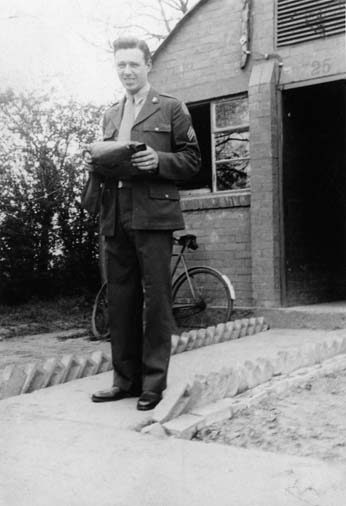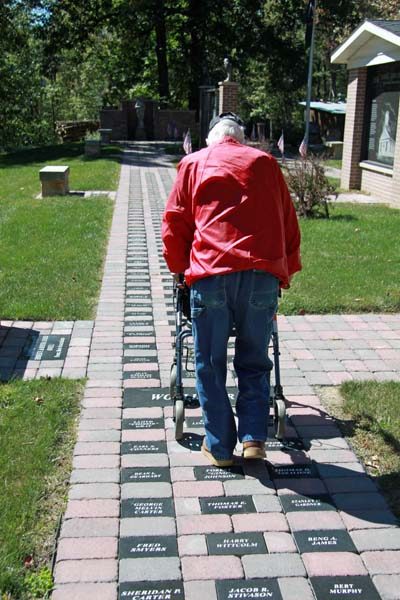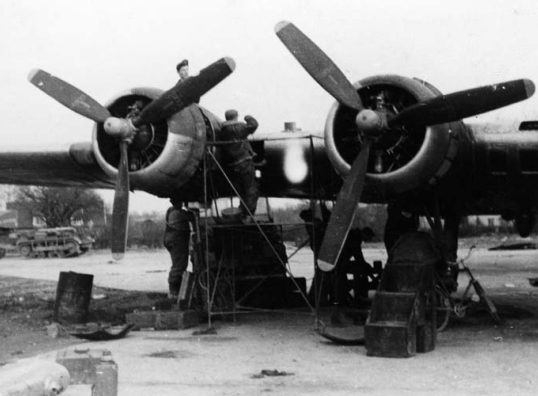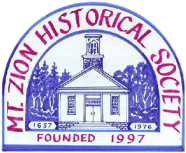Remembering
Staff Sergeant Charles Bernard Moore
WWII Army Air Corps Ground Crew


Remembering - Staff Sergeant Charles Bernard Moore - "Keep 'em Flying"

Ground crews were responsible for keeping the aircraft of WWII in safe flying condition. Ground crew members made repairs to aircraft, as well as handling routine maintenance. They loaded bombs and 50 cal. ammunition so the airmen would have a chance to sally forth on many combat missions. Always looking for “their” bomber to return successfully from a mission. As soon as a plane landed, the ground crew went to work – checking landing gear, refilling fuel tanks, examining the wings, and making any and all necessary repairs- and often cleaning the bomber of blood from a wounded – or KIA airman!. These un-sung heroes worked day and night repairing flak damage received over France and Germany. The ground crew’s job was truly to “keep ’em flying.”
Compared to the flight air crews , the ground crews never got the attention they deserved. Many a pilot will tell you without the ground crews the planes wouldn’t fly. And many a pilot probably didn’t express their thanks to the ground crew either- just too busy and thankful they got back alive- if they did. High risks, high rewards maybe. Charles Bernard Moore was one of those many WW2 ground crew members we shouldn’t forget.
Bernard, as he is called, was born on August 14, 1920 in Weedville to Charles Otto Moore and Effie May Gardner. He grew up in the Bennett’s Valley and graduated with the class of 1939 from Jay Township High School. He was drafted in 1942- less than a year after Pearl Harbor. Staff Sergeant Bernard Moore served in the Army Air Corps with the Mighty 8th (385th Bombardment Group - nicknamed ”Van’s Valiants” - named after the Group’s first Col. Van Devanter) and was stationed from 1943 to 1945 at the Great Ashfield Airfield (Station # 155) in Suffolk, England as part of a heavy maintenance crew bombers. The picture on the left of Sgt Bernard Moore was taken in front of his hut in Suffolk, England with a favorite pastime of his behind him- a bike.
From 1943-1945, as a USAAC aircraft mechanic, he worked on the key bombers of the war:the B-17 Flying Fortresses and the B24 Liberators. Being the smallest guy in his crew, he always got the job of crawling into the wings to replace damaged fuel tanks. He loved the B17s and P-47s for their ruggedness. The picture above is from his England airbase with the ground crew getting the B17 ready for its next flight. The 385th received two Distinguished unit Citations (DUC), the first for Regensburg and in October 1943 for leading the attack on the Marienburg FW190 factory.
His favorite past-time was to go for bike rides through the countryside, and one time he was going down a dirt road in a fairly isolated area and came across a B17 hidden in a bunch of trees. There were antennas sticking out all over it and pretty quick an MP ran up to him and told him to get the hell out of there and don’t tell anyone what he saw or else. Turns out the AAF was using old 17 air frames as remote controlled bombs.
He never talked much about his job or his service or what it entailed, but quite a bit must have been fairly gruesome. Like most vets, he just wanted to help win the war, and come back home to his family. What he has talked about are the things he saw, the people he met (including actor/British Commando David Niven and also then Princess Elizabeth at Buckingham Palace), and the lighter side of his tour. One thing he mentions proudly that he was a member of the ground crew for the last P-47 in service.
After the war he married Vendla Wilhelmina Anderson of Caledonia, and continued his career as a aircraft mechanic first with the Air National Guard (P39s) at Camp Bell, then with the civil service, and starting in 1970 with the Air Force Reserves all in Niagara Falls where his children Dennis, Linnea and Wayne were born and raised. He stayed in the service until his beloved wife became disabled with rheumatoid arthritis, Bernard retired as soon as possible to care for her. After she passed away in 1983 he moved back home to the Valley.
He just loves his planes and has always been a proud and true Air Force fan. And back in 1939, I wonder what Bernard thought his passion would be. Airplanes?
Dad-(Bernard) we are all proud of you and your quiet service to our country. “Keep ’em flying”
Lest We Forget...
